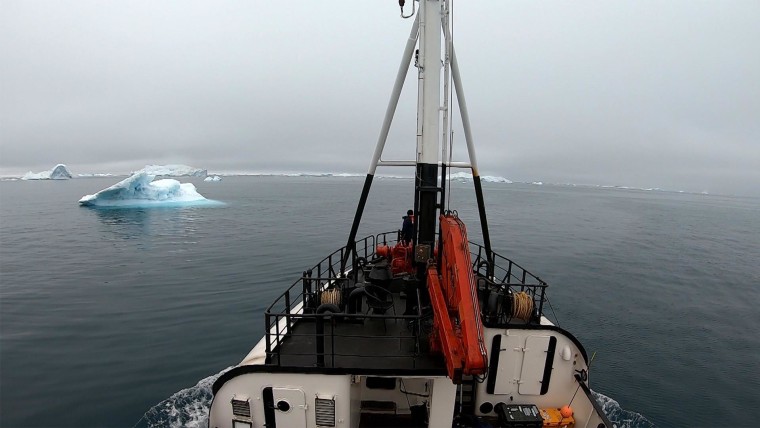Intelligencer- The Swamp
Senior Trump Official: We Were Wrong, He’s a ‘Fascist’

On Friday afternoon, 48 hours after the U.S. Capitol was stormed by violent insurrectionists encouraged by Donald Trump in an attempt to overthrow the government in protest of his election loss, a senior member of his administration spoke to me while he was driving to work.
“This is confirmation of so much that everyone has said for years now — things that a lot of us thought were hyperbolic. We’d say, ‘Trump’s not a fascist,’ or ‘He’s not a wannabe dictator.’ Now, it’s like, ‘Well, what do you even say in response to that now?’”
For four years, people like this official — lifelong Republican operatives — have convinced themselves that Trump’s obvious faults were worth tolerating if it meant implementing a conservative policy agenda. These officials believed the benefits of remaking the courts with conservative justices, or passing tax reform, outweighed the risks that a Trump presidency posed to democracy and to the reputation of the country in the world. Now, at the 11th hour, with 12 days left before Joe Biden is sworn into office, it’s clear to some that it was always a delusion.
“This is like a plot straight out of the later, sucky seasons of House of Cards where they just go full evil and say, ‘Let’s spark mass protests and start wars and whatever,’” the senior administration official said.
“I went through Access Hollywood, Charlottesville — all of these insane things. There’s some degree of growing accustomed to the craziness. It’s not like my heart is racing, like, Oh God, how am I supposed to react to this? It’s just more that I’m depressed. For people who devoted years of their lives to dealing with the insanity in an attempt to advance a policy agenda that you believe in, all of that has been wiped out. The legacy of the Trump administration is going to be that the president sparked an insurrection and people died because he tried his best to not abide by the Constitution and the tradition of a peaceful transition of power that’s been the norm since our founding. Nothing else is even going to be a side note.”
Trump’s world has grown ever smaller as the damage he inflicts on the United States continues to swell. Wednesday’s attack on the Capitol, which left five dead, including a police officer, prompted resignations in the administration and calls for Trump to do the same and threats — from Democratic and Republican lawmakers — of a second impeachment as well as vaguer discussions about the 25th Amendment. Trump is an increasingly symbolic figure — Norma Desmond with the nuclear codes and sycophantic butlers in his ears on a West Wing Sunset Boulevard soundstage. With no power left to grab, many staffers spent the weeks following November 3 making themselves scarce, plotting their post-White House careers, avoiding the president’s calls.
But many others are keeping their heads down and keeping their jobs, citing, among other self-serving interests, a desire to remain on their health-care plans, according to my interviews with staffers. Others justify their continued employment by citing the demands of the continuity of government.
“There’s not a single person I have talked to at any level, from 23-year-old assistants to members of the Cabinet, who are not disgusted and ashamed with what has happened,” the senior administration official said, adding that the conversations among remaining officials were about how to handle the next 12 days before Joe Biden’s administration — and whether to continue to be a part of the transition of power at all. “It’s different for everybody. If you’re a regular domestic-policy staffer in the West Wing or the EEOB, the implications of you quitting are different than if you’re a senior national security official, or you’re tasked with contributing to the continuity of government.”
“We are in a terrible spot,” the official said. “You can’t just say, ‘Well, this is outrageous and I quit’ in this situation.”
Trump’s inner circle has contracted amid the self-created chaos and carnage. For this reason, resignations have not had much of an effect on him directly. “He may not even notice,” one adviser said. “People aren’t around to begin with. There aren’t policy meetings with the president and eight or ten people in there anymore.”
Advisers have expressed concern and anger over Mark Meadows, the chief of staff, whose actions have been perceived as an effort to secure employment with Trump in his post-presidency, perhaps at the Trump Organization. “Jared has been telling people, ‘Don’t even deal with him anymore,’” one adviser said. “Mark’s responsible for bringing kook after crazy after conniver after Rudy into the West Wing.” (“This is completely false,” Avi Berkowitz, Jared Kushner’s spokesman, said in a tweet responding to this article, “Jared has never said that.”) A former senior White House official said, “Morale plummeted under him, huge mistakes were made — and now he’s scrambling to stick around after. He’s a dishonest asshole who pretends to be this religious Southern gentleman. Fuck that.”
The senior administration official put it this way: “The only way it gets to this point are a thousand really bad small decisions. The first time Sidney Powell calls the White House switchboard and is allowed to speak to the president, the next thing you know she and others are in the West Wing — these are areas where the chief of staff has unilateral authority to do what he wants to do.” Instead, the official said, Meadows tells Trump what he wants to hear, and often calls whomever Trump has directed him to call, repeats what Trump told him to say, and then apologizes, explaining that he just needs to be able to tell the boss that he followed his orders.
Meanwhile, the yes-men are countered mostly by the lawyers, who have tried to convey to Trump that he has put himself at risk of prosecution, not just by inciting Wednesday’s riot — for which the Justice Department is reportedly open to pursuing charges — but for his phone call to Georgia election officials, in which he attempted to pressure them to overturn the results, as well as in the many ongoing investigations related to his businesses and finances.
“It’s a lot to adjust to. If you think you’re going to be there for four more years, it’s a bit jarring,” the adviser said. “The smart lawyers have gotten to him. It’s all hit him since yesterday: You may have legal exposure from yesterday. You definitely have legal exposure from other things. You have less than two weeks to remain ensconced in here with executive privilege.”
This adviser, who spoke to Trump on Wednesday amid the siege, said Trump watched the events on television intently. CNN reported that he was so excited by the action, it “freaked out” some staffers around him. The adviser told me that Trump expressed disgust on aesthetic grounds over how “low class” his supporters looked. “He doesn’t like low-class things,” the adviser said, explaining that Trump had a similar reaction over the summer to a video of Brad Parscale, his former campaign manager, shirtless and drinking a beer in his driveway during a mental-health emergency in which police tackled him and seized his weapons. “He kept mentioning, ‘Oh, did you see him in his beer shirt?’ He was annoyed. To him, it’s just low class, in other words.”
The adviser said that Trump recently offered them a pardon, although they have not been charged with any crime. The adviser “politely declined.” Others are taking Trump’s pardon offers more seriously, whether they’ve been investigated or are at risk of jail time or not. “He’s just talking up a storm about giving pardons to allies: his kids, and their significant others, and staffers. He’s pretty generous with the offers. When you’re offered one, it’s like, Should I take it? Is it like insurance?”
One person close to Trump’s legal team told me that the lawyers have struggled to get his attention. “He’s sort of turning on everybody. The president is so visceral, he just can’t hear people unless he can respect them. And he thinks everybody’s a traitor, even the people who got him through impeachment. It’s just nuts.”

/cdn.vox-cdn.com/uploads/chorus_image/image/68622974/620870614.0.jpg)
:no_upscale()/cdn.vox-cdn.com/uploads/chorus_asset/file/22215366/Trump_supporters_Confederate_flag.jpg)




